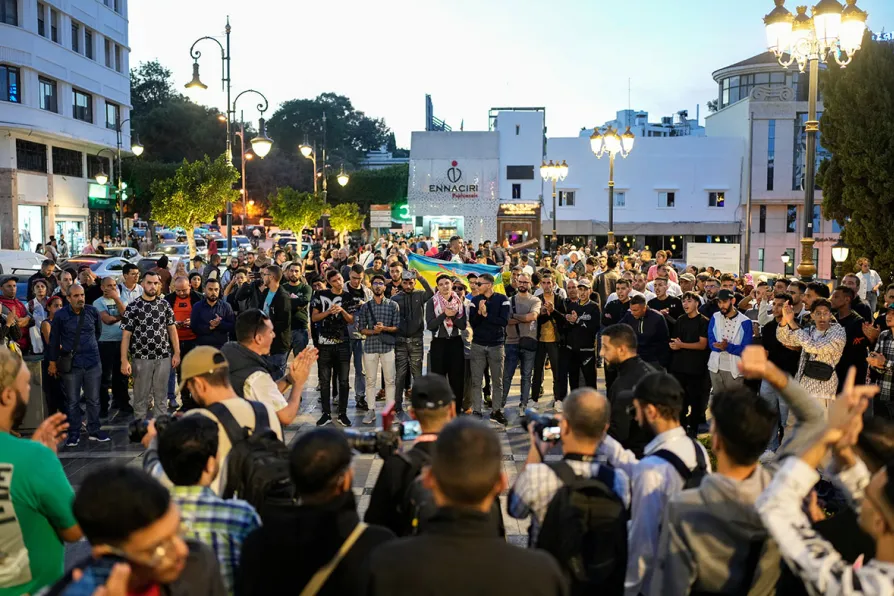
 People take part in a youth led protest calling for education and healthcare reforms, in Tangier, Morocco, October 18, 2025
People take part in a youth led protest calling for education and healthcare reforms, in Tangier, Morocco, October 18, 2025
REFUSING to let hype around the upcoming Africa Cup of Nations overshadow their demands, protesters on Saturday called for a boycott of football matches at Morocco’s new stadiums.
They also called for the release of demonstrators who had been arrested during earlier Gen Z “212 Movement” protests.
After an eight-day pause, hundreds of young demonstrators took to the streets on Saturday to show they remain committed to fighting corruption, subpar healthcare and poor education.
In several cities – including Casablanca and Tangier – hundreds of young protesters once again voiced anger at elected officials, demanding the ousting of Prime Minister Aziz Akhannouch, who they called corrupt.
The protests came eight days after King Mohammed VI, in a speech at Morocco’s parliament, failed to address the 212 protests directly.
He also dodged demands to dismiss Mr Akhannouch, and downplayed anger over the stadiums, which are being built for the 2030 Fifa World Cup.
He said national projects and social programmes could advance together.
“There should be no contradiction or competition between major national projects and social programs, as both share the same goal – developing the country and improving the living conditions of citizens,” Mohammed VI said in his speech.
Demonstrators on Saturday again chanted, “Stadiums are here, but where are the hospitals?” and called on Moroccans to “boycott the stadiums.”
Protesters told reporters they would snub the upcoming African Cup of Nations, which Morocco will host in December, in a show of disapproval.
Most declined to provide their names out of fear of retribution, due to previous arrests at protests.
One protester said: “I’m done with school and studying, but I’m here demanding reforms for the generations to come.”
The protests are led by Gen Z 212, which organises demonstrations on social media platforms like Discord, an app popular among gamers and teenagers, where they now have more than 200,000 subscribers.

We must remember Morocco’s land grab of the Sahrawi people’s territory continues with French and British support, writes BERT SCHOUWENBURG, looking into the origins of the annexation

Joao Pedro’s emotional goals against Fluminense captured the magic of an international club competition. But even as fans bring colour and passion, the Club World Cup’s deeper issues loom large, writes JAMES NALTON

JAMES NALTON discusses the use of dynamic ticket pricing at the 2026 World Cup and how it amplifies a culture already set up to squeeze as much money from fans as possible











